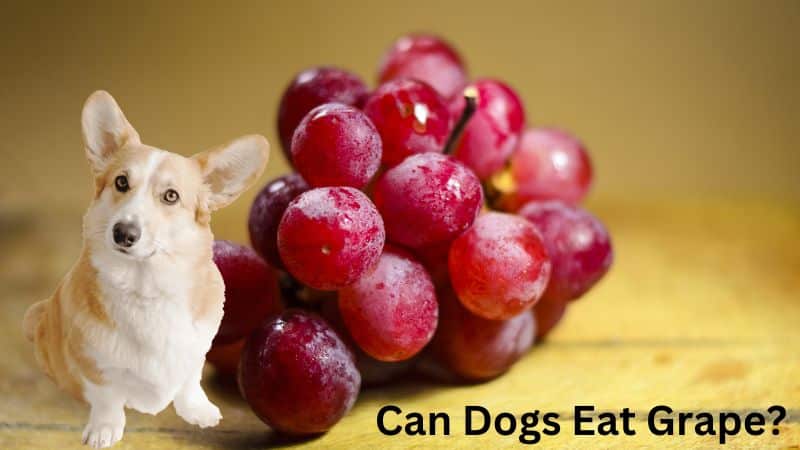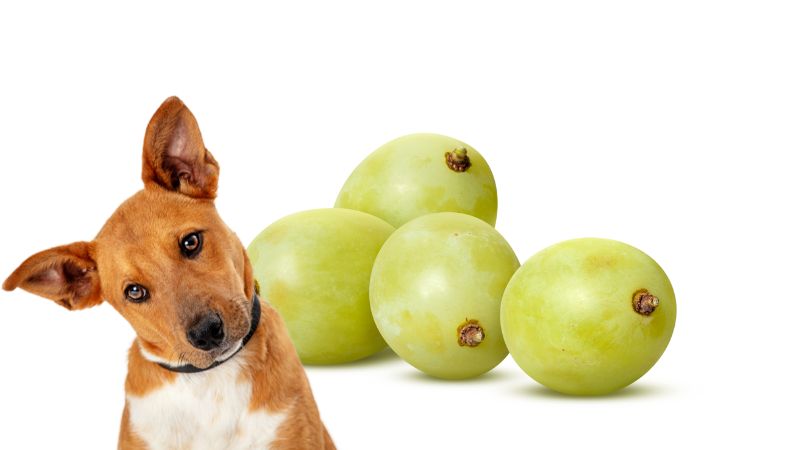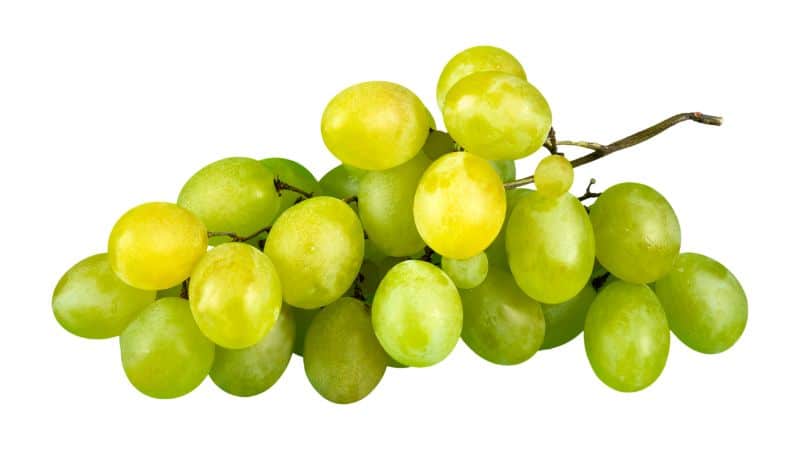
Grape is not allowed to eat dogs.
Poisoning and illness can occur from grapes in dogs. Grapes should not be given to dogs. A dog eating grapes or raisins can suffer acute kidney failure, and, in severe cases, symptoms may be serious. Here’s why grapes are dangerous for dogs, why, and what to do if they’ve been accidentally ingested.
Dogs poisoned by grapes and raisins have been reported since 2001.
Dogs ingested grapes in an accident that led to acute renal failure. Similar accidents have been reported worldwide since then, and some have lost their lives.
Due to reports of damage caused by grapes and raisins, grapes have become an increasingly dangerous food for dogs among dog owners.
Today, most dog owners know that grapes are not allowed for dogs. It is unlikely that the owner will willingly feed his dog grapes, but you should be aware of accidental ingestion.
It is even possible to go grape picking with your dog. As the owner eats, grapes and raisins may fall to the floor. In such a case, you should be careful not to let your dog eat the grapes.
Let’s start by learning what grapes contain that are harmful to a dog, the symptoms that can be observed if your dog eats grapes or raisins, and what to do.
Is grape juice harmful to dogs?

“Grape poisoning” is a symptom of acute renal failure when dogs eat grapes. The following are some possible symptoms:
Symptoms of poisoning (acute renal failure)
If your dog swallows’ grapes or raisins and then exhibits these symptoms, it may have acute kidney failure. It would help if you took them to a veterinary clinic immediately.
- Loss of appetite and energy
- vomiting
- Ammonia-like breath
- No urine, less urine
- Confusion
- Stay still (because your kidneys hurt),
Symptom onset time
About 2 to 5 hours after eating grapes and raisins, symptoms appear. No matter if you see no signs, if you are sure your dog has eaten grapes, you should consult a veterinarian as soon as possible.
How to handle a dog who eats grapes
Acute renal failure is a life-threatening disease in which kidney function deteriorates rapidly within a day.
It is possible to cure acute renal failure if detected and treated early, but it can be fatal if detected and treated late.
If you experience the symptoms listed above, contact a veterinary clinic immediately.
Hospital examination and treatment methods
The veterinarian performs “emetic procedures,” including vomiting grapes, gastric lavages, and intravenous drips to dilute harmful substances and replace fluids lost during diarrhoea and vomiting.
The following tests are also necessary to determine future countermeasures.
- Numerical kidney test: urea nitrogen, creatinine
- Inflammatory markers: CRP
A test showing elevated values and damaged kidneys will make recovery difficult with the abovementioned and symptomatic treatments alone.
The patient must be hospitalized and undergo diuretic infusions. In addition, kidney dialysis is required if urine doesn’t come out after intravenous drips, but only a few veterinary hospitals can do dialysis.
Performing these treatments promptly and allowing the kidneys to regenerate may restore the ability to make and produce urine to a normal state.
Here are some reasons why dogs shouldn’t eat grapes

Grapes and raisins are safe for humans to eat. Why do dogs get poisoned when they eat?
Grape poisoning symptoms are unclear.
There is no clear explanation for what components of grapes cause the dog’s poisoning.
Large amounts of grapes and raisins can cause calcium oxalate formation, but recently acute renal failure due to the destruction of kidney tissue has gained attention.
The kidneys filter blood and release waste products and toxins from the body as urine.
“Failure of the kidneys” refers to accumulating waste products that cause various symptoms (uremia). “It occurs when kidney function deteriorates rapidly in just one day. The illness can be life-threatening if it becomes severe.
Raisins are also natural grapes; there is no difference between them
Does the level of danger vary with the type and part of the grape?
Currently, it is unknown which grape is more likely to cause poisoning symptoms. Skinned and skinless have not been confirmed.
Grapes have many processed products, and grape juice, jam, and raisin bread.
Even grape juice was reported to cause poisoning. Raisins are considered more dangerous than raw grapes since raisins contain less water, so their components are concentrated.
An indication of a dangerous amount
of ingestion of grapes and raisins by dogs is currently unknown.
Amounts of grapes reported to cause poisoning symptoms and acute kidney failure have ranged from 1 to 3 grams per 57 kg of dog weight. Dry grapes also yield poisoning symptoms at 1 to 11g per 30kg body weight.
There is a possibility of poisoning from the next intake:
Grapegram table
Grape varieties
Case of poisoning after intake
Dried grapes (1 grain of about 0.6g)
Approximately. 18 tablets per 30kg of body weight (1-11g per 30kg)
The average weight is estimated at 3 kg/1 kg, the smallest amount of onset.
Grapes are dangerous for dogs regardless of how much is consumed, just like chocolate and onions.
Grapes and dogs: how to prevent accidental ingestion

Owners should be careful about these things to avoid their dogs eating grapes.
Grapes are dangerous to 80% of owners.
I asked dog owners if grapes were safe to eat in the editing room. 88% of pet owners answered, “I don’t feed them.”
Fortunately, few dogs get into trouble because their owners give grapes, and most problems result from dogs accidentally ingesting or stealing.
Keep grapes out of reach of dogs. Beware of vineyards and kitchen gardens as well.
Many accidental ingestions occur indoors during daily activities or walks. Among the possible causes of dogs eating grapes and raisins are:
- The dog can reach the grapes and raisins on the table.
- The owner left grapes and raisins on the floor as they were.
- On the walking course, there is a vineyard. Growing grapes in the garden.
- Grape picking with my dog, and the dog walked around
Sweet and fragrant grapes are one fruit that looks delicious, even to dogs. Your dog may eat it if it is hungry or greedy.
If your dog swallows grapes, it may choke on its throat and find breathing difficult. Dog owners should not leave grapes or raisins on the ground or within reach of their dogs to prevent accidental ingestion of grapes.
A summary
Grapes, raisins, and processed products containing grapes can cause acute renal failure. The mechanism and lethal dose of grapes are unknown, so do not give grapes to dogs, no matter the amount. The owner is responsible for protecting his dog’s health and life. Learn the correct knowledge, and don’t swallow your dog.
Dogs also enjoy many vegetables and fruits that are good for their health. Be careful not to give too much to protect your dog’s health, and enjoy life with your pet by giving it a good balance with dog food.
Leave a Reply